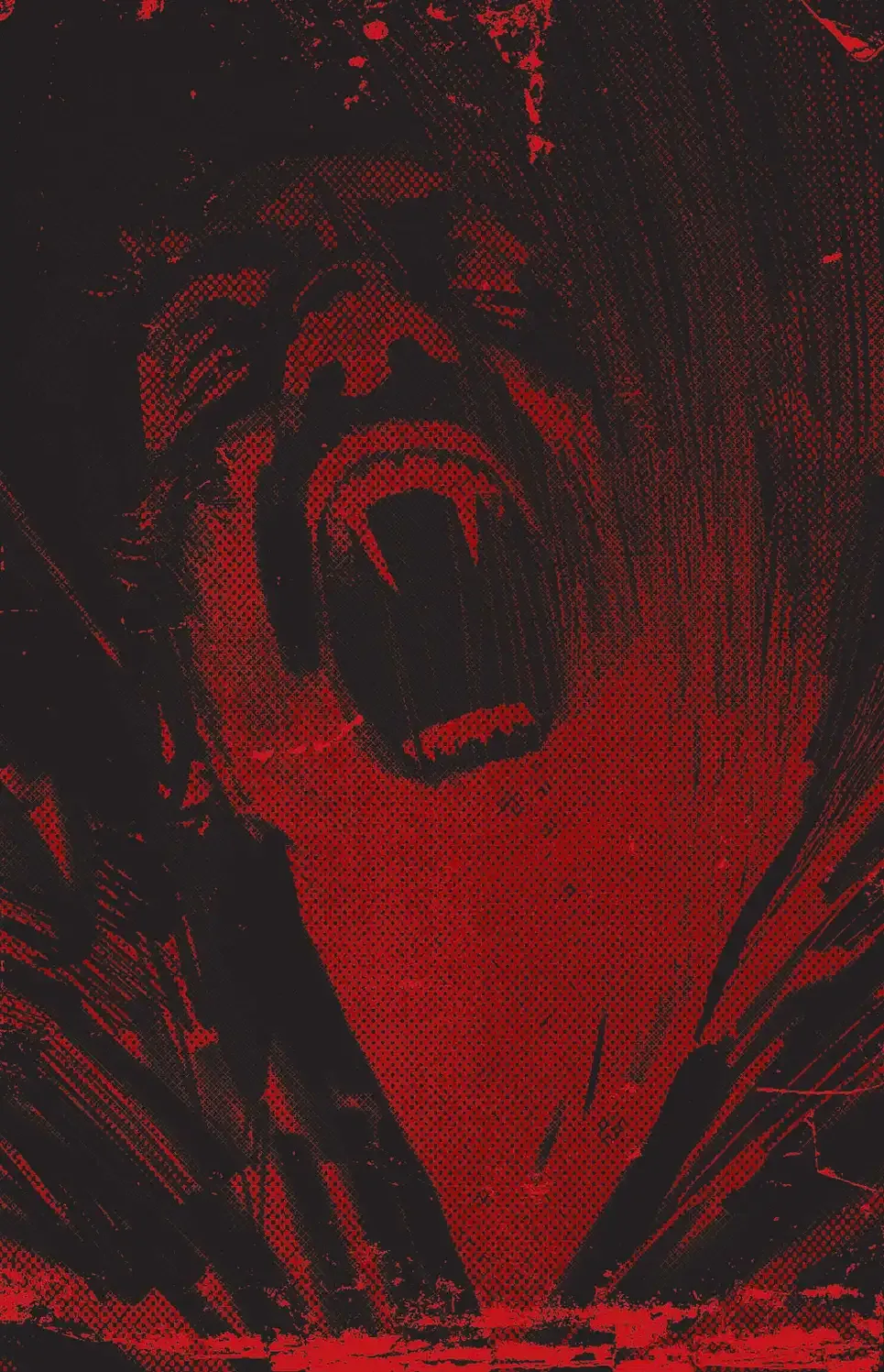There is no doubt that this apparent aseptic packaging of the perversions hidden in the homes of the ‘American Gothic’ of the horror movies of the 80s is currently the most profitable nostalgia in genre multimedia content. However, there are those of us who opt for the unparalleled splendor of violence and urban filth that was the form and background of a good part of the horror cinema of the 70s.
In recent times, two outstanding works in comics resume the transcendence of cinema and TV Serie B, not only to exploit again a couple of icons, but to delve into their own mythology, and in the same way explore the codes that have made these works imperishable.
KOLCHAK, THE NIGHT STALKER. 50TH ANNIVERSARY.
Moonstone, 2002
Various Authors
Publisher: James Aquilone
The potential viewing public that makes hits out of the dozens of ‘TV’ series that swirl around the well-known platforms surely have no idea who Carl Kolchak is, and indeed shouldn’t. But we must thank the Moonstone label and the publisher James Aquilone for celebrating this character and his creators and authors, and reminding us where so many myths come from that today entertain and sustain so many viewers and storytellers.
The charm of cynical, talkative, and obsessive reporter Carl Kolchak—played by Darren McGavin, whose profile has been remarkably respected for his comic book incarnation—has marked generations since he was first seen on television half a century ago. American —and from there to dozens of countries—, with a couple of brilliant films for TV — The Night Stalker and The Night Strangler— and later with a popular series in which he continued his investigation and coverage of the strangest stories and cases that confronted him with a fabulous and bizarre catalog of supernatural entities: werewolves, zombies, demons and, among many others, vampires, of course, and not forgetting a headless biker. Events that confronted him, equally, with the disbelief of a world that was falling apart, but that has continued to not accept the external agents that conspire against him – the radical differences between Mulder and Scully are a continuation of this already seminal battle.
Constructed by the journalist Jeff Rice, and defined and enriched by the great novelist Richard Matheson for the two films that launched him and his subsequent television series, Kolchak was a character and a saga that marked and captivated an audience that has not stopped growing. , for its approach to the urban world perfectly reflected through its streets, its inhabitants and with the same fears and phobias of the spectators of one —and more— decades where the horrors of real life found a figurative nuance in the threats faced by Kolchak, and that since then have been a central part of the literature that has shaped us both in fiction and in the daily news.
Since 2002, Moonstone has been in charge of publishing a good number of miniseries and graphic novels by various authors, where the mythology of this character has continued to be built. And it is now on the 50th anniversary of the character that Kolchak, the Night Stalker has been published . 50th Anniversary, a compilation of 12 new stories spread across seven decades of the character’s journalistic work, with eloquent results in some cases.
Kolchak’s chronicle of life with the supernatural starts from his early student years and continues until the beginning of this new century and millennium, with a denouement that seems to be everything: lyrical, explosive, expected, unexpected and obvious… in a certain way.
Through the stories we see certain paradigm shifts over the years, and the white tapestry that takes over the protagonist’s hair, but the professional intention of the character and, above all, the unmistakable white hat on his head as an accentuation. from their dissonant state in the face of social disbelief, they remain intact.
Listing the catwalk of monstrosities that Karl Kolchak faces during the more than 170 comic pages of this compendium, would be to spoil a good part of the surprise that it holds; but let’s say, there are interesting variations or reworkings of classics, as well as Kolchak’s confrontation with the extraordinary in historical contexts that we know, and without forgetting the revelation of how his classic hat was made and, as already mentioned, of the shocking end of Kolchak himself.
In this type of anthology we are accustomed to finding ourselves only with entertainment, so to speak; but in this case, interesting data about his life and its outcome are revealed to us; that is to say, this series of stories value entertainment and the weight of the facts for the character in the same way.
The book includes two interesting and significant introductions, one signed by James Rice and the other by Richard Christian Matheson, both authors descendants of the initiators —along with the director and producer Dan Curtis— of this mythology half a century ago on TV; and in the case of the son of the author of “I am Legend”, he also collaborates in this book with a story, which becomes his first work for a comic. Among the outstanding list of writers assembled are Peter David ( The Incredible Hulk ), Nancy A. Collins ( Sunglasses After Dark, Swamp Thing ), Kim Newman ( Anno Dracula ), Steve Niles ( 30 Days of Night ), Rodney Barnes ( Killadelphia, Blacula Return of the King) and, among others, Aquilone himself.
And in the field of drawing, artists such as JKWoodward, Szymon Kudranski, Colton Worley, Warwick Cadwell-Johnson, Paul McCaffrey and, among others, Gabriel Hardman, who writes and illustrates, offer notable translations into drawings.
In Kolchak, the Night Stalker. 50th Anniversary we find a remarkable choir of different voices that unite talents for a single objective: to celebrate and highlight the work of Carl Kolchak, a journalist who always sought the truth… however extraordinary it may seem.
Kolchak, the Night Stalker. 50th Anniversary was produced thanks to a successful Kickstarter campaign, but for anyone who couldn’t purchase it at the time, you can do so directly here: Monstrousbooks.com .
BLACULA, RETURN OF THE KING
Zombie Love Studios
By Rodney Barnes and Jason Shawn Alexander
1972. While Carl Kolchak confronts a vampire of European blood in Las Vegas through the television screen, in a good number of movie theaters a new anti-hero emerges in the framework of blaxploitation: Blacula… indeed, a vampire for consumption of a very specific sector of moviegoers, although radicalizing the aristocratic character of the figure of the vampire towards that of African slavery.
Thus, the African prince Mamuwalde —interpreted by William Marshall— who in 1780 went to Transylvania accompanied by his wife, Luva, to ask Count Dracula on an official visit to end his slave trade, in response he was subdued and turned into a vampire by the Count himself, who condemns him to eternal life locked in a sarcophagus while he listens to his wife die and, between Dracula’s laughs, hears him baptize him with the nickname Blacula.
In just a few minutes of prologue, the film directed by William Craine, and written by Joan Torres, Raymond Koening and Richard Glounor, perfectly summarizes the historical rancor of a culture and race whose grief and courage could be symbolized by the mockery of ” King of Vampires.”
We go back to 1972, and Mamuwalde is randomly revived and causing a vampire epidemic in the streets of Los Angeles, which confronts him with his own race and without being able to put aside a curse that he has carried for centuries.
Although Blacula , the film, was largely a middling success of its time, it has been a source of reference and inspiration ever since. The writer Rodney Barnes is one of the spectators who was marked by this film experience, and today, half a century after the premiere of this work, he is making a spectacular comic book sequel, backed by the explosive illustrations of Jason Shawn Alexander.
The streets of some neighborhoods in Los Angeles begin to bathe in blood as dozens of their inhabitants disappear. In principle it is considered that it is about settling accounts between rival gangs; However, when you paint with the name Blacula, a rumor begins to spread that an old myth that caused a bloodbath in the 70s has returned from the grave… however, Prince Mamuwalde seems to be the victim of a ploy once again. of the centennial King of Vampires.
Blacula, Return of the King , does not confront the African vampire with a world that is 200 years ahead of him, as in the first film; however, the differences between the 1970s and the second decade of the 21st century also speak of completely different ways of thinking and behavior. Blacula now, faced with a common enemy, finds allies in the descendants of his victims, and understanding a world that can be run from a cell phone can be complex.
Barnes, of course, traces very well the encounter of an ancient supernatural being with the present, and all the elements allow for the pertinent discussion of races and creeds. But, above all, the writer considers building a logical sequence in the Blacula myth, which then yields an entertaining and fun vampire story that finds a spectacular execution in the expressive strokes of Shawn Alexander, owner of a canvas of darkness and crimson where the encounter between the expressionist and the naturalist yields a perfect product for the subject, as this duo of authors have already demonstrated in their celebrated Killadelphia saga ( Image Cómics, 2021 to the present).
Normally, when a product of this nature leaves its end open, the reader mostly laments after having experienced a clear example of exploitation without rhyme or reason; In the case of Blacula, Return of the King , the open ending is appreciated and is the promise that a narrative that is due to exploitation will continue, but from the perspective offered by the passage of time, an aging that allows see aspects that were previously denied and that now, with his Zombie Love Studios label, Barnes himself promises to deliver quality exploitation works. There could not be better news.







